US And E3 Call On Iran To Agree To Current Nuclear Proposal
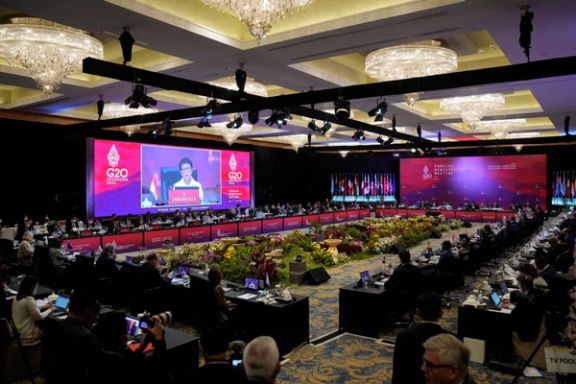
The United States, France, Germany and Britain have once again called on Iran to abandon its demands that are beyond the 2015 nuclear deal and agree to the current agreement at hand.

The United States, France, Germany and Britain have once again called on Iran to abandon its demands that are beyond the 2015 nuclear deal and agree to the current agreement at hand.
The foreign ministers of the United States, France, Germany and the deputy foreign minister of the United Kingdom made the call in a meeting of the Transatlantic Quad foreign ministers on the sidelines of the Group of 20 ministerial meeting in Bali, Indonesia on Friday.
According to a readout of the meeting by the US Department of State, Secretary Antony Blinken, French Foreign Minister Catherine Colonna, German Foreign Minister Annalena Baerbock, and UK Second Permanent Under Secretary and Political Director Tim Barrow expressed concern about the pace of developments in Iran’s nuclear program.
They reiterated their commitment to a mutual return to full compliance with the JCPOA (the Joint Comprehensive Plan of Action), calling on Iran to drop its extraneous demands and to quickly agree to the deal that is currently available.
Following the failure of Tehran-Washington proximity talks in Qatar last week, the US State Department says there is no plan for another round of talks for now. There has been a deal on the table that is more or less finalized for several months now, he said.
On Wednesday, Qatar’s Foreign Minister Mohammed bin Abdulrahman Al Thani visited Iran to discuss the latest development on kickstarting the nuclear talks, which had stalled for months.

An Iranian-born senior official of the German domestic intelligence agency has recently made a personal visit to Iran following the death of her father.
German-language news magazine Focus reported on Friday that Felor Badenberg, the vice president of the Federal Office for the Protection of the Constitution (BfV) violated the strict security precautions of her own agency by making the private trip to the Islamic Republic, as many European countries as well as the United States are struggling to secure the release of their citizens held in Iran.
Badenberg, who was only promoted to the top of federal intelligence agency on June 22 by Interior Minister Nancy Faeser, flew to the Iranian capital months ago to settle inheritance matters after the death of her father. She had been previously the head of the Right-Wing Extremism and Terrorism Department of the BfV since June 2020.
All BfV employees are strictly prohibited from traveling to or staying in countries such as Iran, Syria or Russia as they are at risk of arbitrary detention, mainly over espionage. The BfV president and the minister were apparently aware of her trip but they declined to answer if they approved Badenberg's flight to Tehran.
Security circles assume that the 46-year-old was under meticulous surveillance by the Iranian secret service after she landed in Iran, with a senior government official saying that Iranian counterintelligence has certainly recorded very precisely who she met and where, meaning that Badenberg's contacts and family in Tehran are now in peril. The risk of possible blackmail is too high, the report suggested.
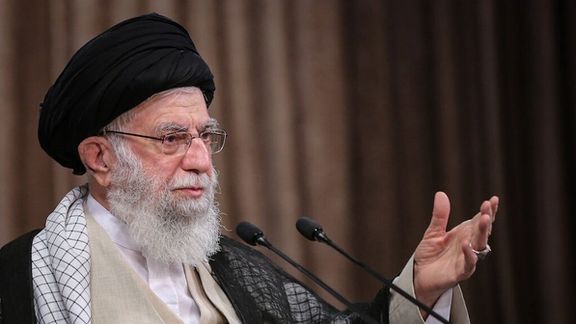
In a message to world's Muslims, Ali Khamenei the ruler of the Islamic Republic of Iran has called for "unity and spirituality" while attacking Western values.
Khamenei’s Shiite followers call him the leader of the Muslim world, but his appeal reaches a tiny minority of Muslims who are overwhelmingly Sunni. He is known among many Sunnis as a man who has been sowing division among Muslims through his actions in Syria, Iraq, Yemen and elsewhere.
Meanwhile, his critics say that the extent of despotism and financial corruption in the system under his leadership leaves no room for spirituality.
Khamenei also repeated his favorite theory that the West tithers on the verge of defeat and collapse, at a time when the United States and Europe have shown strong unity to confront Russian aggression in Ukraine and NATO has just accepted Sweden and Finland as new members.
He said in his message on the occasion of the annual Hajj pilgrimage: "The Islamic nation can once again observe its unity and harmony in this clear, timeless mirror, and take this opportunity to turn away from factors that lead to disunity and division." The statement is in total contradiction to Khamenei’s and his government's behavior as they have not been able to maintain friendly ties with Muslim nations around Iran, including Saudi Arabia where millions of Muslims from other countries gather for the pilgrimage.
Nonetheless, Khamenei accused "the enemies of Muslim nations" of "weakening the two bolstering elixirs of Islamic unity and spirituality among our nations."
"The enemies of Islam strive to weaken spirituality by promoting a western lifestyle that is devoid of spirituality and which is rooted in a short-sighted, materialistic vision of the world," Khamenei reiterated. "on the other hand," he stressed "everyone must work to overcome the factors that foster division and disunity."
Khamenei in his message emphasized the role of ideas such as "Islamic awakening, resistance," and what he called "the political governance in the Islamic Republic of Iran," as the elements of unity in the Muslim world. This comes while his idea of resistance has so far been nothing more than reckless anti-Americanism and opposition to the coexistence of regional nations with Israel.
He further charged that " the Arrogant Powers, and the United States are worried about such a trend in the Islamic world and employ all their resources in order to confront it. The tactics they employ range from dominating the media and soft warfare, to warmongering and starting proxy wars, political espionage, and acts of inducement, and threatening, bribing and other forms of enticement." He added that "the United States is using Israel as a tool for this all-out effort." Khamenei simply ignored Israel's alliance with most of the region's Muslim nations to prevent the Islamic Republic's atrocities.
Meanwhile, on the same day that Khamenei's message was sent out, his senior adviser for international affairs, Former Foreign Minister Ali Akbar Velayati whose Cold War era ideas is believed to have some influence on Khamenei, said "Iran cannot tolerate NATO's presence at its borders," mindless of the fact, that Turkey, a NATO member state for more than 70 years is a neighbor of Iran.
Velayati also echoed Khamenei's belief that the United States and Europe have been in decline during recent years, without providing any proof for the claim.
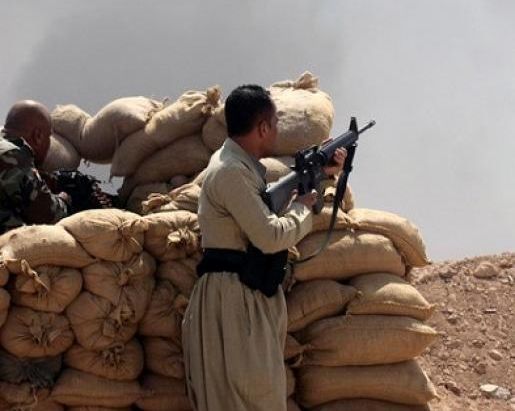
A Kurdish rights group says at least four servicemen of Iran’s Revolutionary Guard have been killed in armed clashes with one of the Kurdish parties in northwestern Iran.
According to Hengaw on Friday, the skirmish took place between IRGC forces and fighters of the Kurdistan Workers' Party in areas between Senji and Mateh-Kharpeh villages near the town of Salmas in West Azarbaijan Province Thursday evening.
The report said at least another four IRGC members were injured in the clashes and taken to Hospital in Salmas but there is no mention of possible casualties on the Kurdish side.
No media close to the Revolutionary Guard or the Kurdistan Workers' Party has published any news about the incident. Iran International cannot independently confirm the report.
The Islamic Republic calls the Kurdish armed groups in the western provinces of Iran, "terrorist groups" or "anti-revolutionary" but these groups say that the goal of their armed campaign is "defending the rights of the Kurds".
Generally, the Kurdish parties − including Komala and the Kurdistan Democratic Party of Iran (KDPI) − favor Kurdish autonomy within a federal Iran. Pejak (the Free Life Party of Kurdistan), an affiliate of the Kurdistan Workers Party (PKK), formed in Turkey but also based in northern Iraq, has generally favored a unified, independent Kurdistan uniting Kurds in Syria, Iraq, Turkey, and Iran.
In June, a senior member of the Organization of the Iranian Kurdistan Struggle accused the Islamic Republic of being behind an assassination attempt on fellow fighter Akbar Sanjabi in Erbil, the capital of the Kurdistan Region in Iraq.
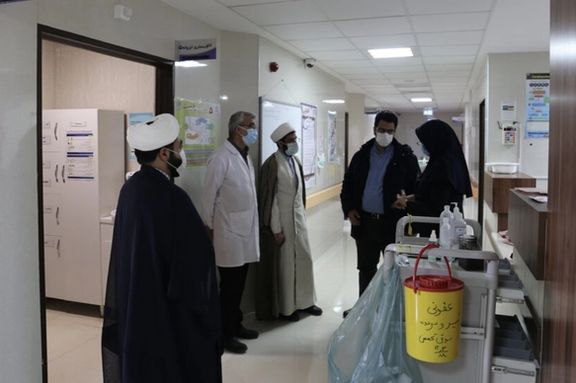
The so-called morality police have started patrolling medical and academic centers in Iran’s northeastern city of Mashhad to enforce compliance with the Islamic dress code (hijab).
In a statement on Thursday, Mashhad University of Medical Sciences confirmed the presence of hijab police and teams from what the Islamic Republic calls the ‘Enjoining right and forbidding vice headquarters’ in hospitals to inspect the dress codes of the personnel and interns in medical centers.
Social media users earlier reported the presence of such teams in various wards of hospitals and medical centers, with some reports of pressures on hospitals to separate male and female patients admitted to the ICU.
Esmail Rahmani, deputy public prosecutor of the religious city of Mashhad has recently ordered the municipality to prevent ‘bad-hijab’ women from using public transportation including the metro and threatened to take legal action against such officials for failing to do so. He has also ordered the governor to ban services in banks and government offices to ‘bad-hijab’ women.
Iran’s hardliner president has recently ordered all government entities to strictly implement a “chastity and hijab” law after weeks of stricter measures on the streets.
Harsher than usual enforcement of hijab this summer has raised protests from many in Iran including some moderate religious and political figures.
No one knows if the enforcement of strict religious rules is related to the authorities attempt to show force, but some citizens see the effort as a scheme to pit people against one another.
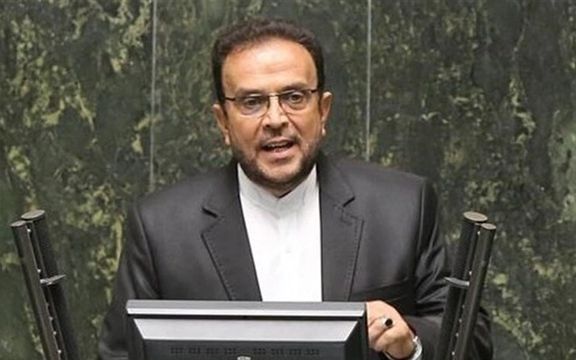
An influential lawmaker in Iran has criticized the performance of Iran’s nuclear negotiating team in indirect talks with the United States in Doha last week.
The spokesman for the Iranian parliament's National Security and Foreign Relations Committee Mahmoud Abbaszadeh Meshkini says Iran's nuclear negotiators could have done better Doha.
Speaking to the centrist Entekhab news website in Tehran, Meshkini said the Iranian team's presence in Doha was uncalculated and that the team did not have a roadmap. He further charged that the Iranian Foreign Ministry lacks a roadmap about how to go about with the negotiations.
The United States' special representative for Iran Robert Malley has described the talks in Doha as "a waste of time" and said that Iranians first need negotiations among themselves. This comes while Iran's Foreign Minister Hossein Amir-Abdolahian has characterized the negotiations in Doha as "positive".
Meshkini told Entekhab: "The Iranian Foreign Ministry still lacks a framework for the talks and does not know how to get concessions." He said that the Foreign Ministry needs "a deep transformation" without which the Islamic Republic will find it difficult and costly to pursue its strategy.
He added that developments in the region gave Iran the upper hand, but Tehran needs a roadmap to take advantage. On the other hand, Westerners are more experienced than Iranian negotiators and their moves are based on seeking concessions.
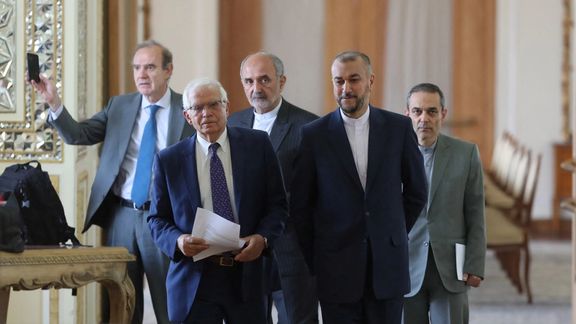
Meshkini concluded that the parliament should pass laws similar to the 2020 legislation that ordered the government to reduce its commitments under the 2015 nuclear deal and push the government to come up with an authoritative roadmap for the talks.
Meanwhile, foreign policy commentator Amir Ali Abolfath told the conservative Nameh News website that those interested in solving the nuclear issue, including European officials, should go to Washington rather than to Tehran and try to convince the United States to return to the 2015 agreement, also called the Joint Comprehensive Plan of Action (JCPOA).
Nameh News described the shuttle diplomacy by European and Persian Gulf officials who frequently visit Tehran to encourage Iran to return to direct talks with the United States as "useless shuttle diplomacy." However, the website acknowledged that perhaps the visits to Tehran by Qatari officials could be more fruitful.
"As long as Washington is not willing to return to the JCPOA, talking with Tehran is not likely to be effective. They come and go and take messages here and there and express hope in further developments. But the train of the negotiations is stuck and will not move forward," said Abolfath.
Eleven months of talks in Vienna were said to be close to a successful conclusion when diplomats ended the process over remaining differences between Washington and Tehran.
Since then, statements by both sides have indicated that Iran demands the lifting of all US sanctions imposed since May 2018 when former President Donald Trump withdrew from the JCPOA and imposed heavy economic penalties on Tehran.
Among these sanctions, the trickiest are those imposed on the Revolutionary Guard (IRGC) and its web of companies that are closely intertwined with its financial empire.
The IRGC is Iran’s primary military force, but it is also an intelligence organization that secretly supplies weapons and money to a host of non-state actors involved in terror activities in the region.